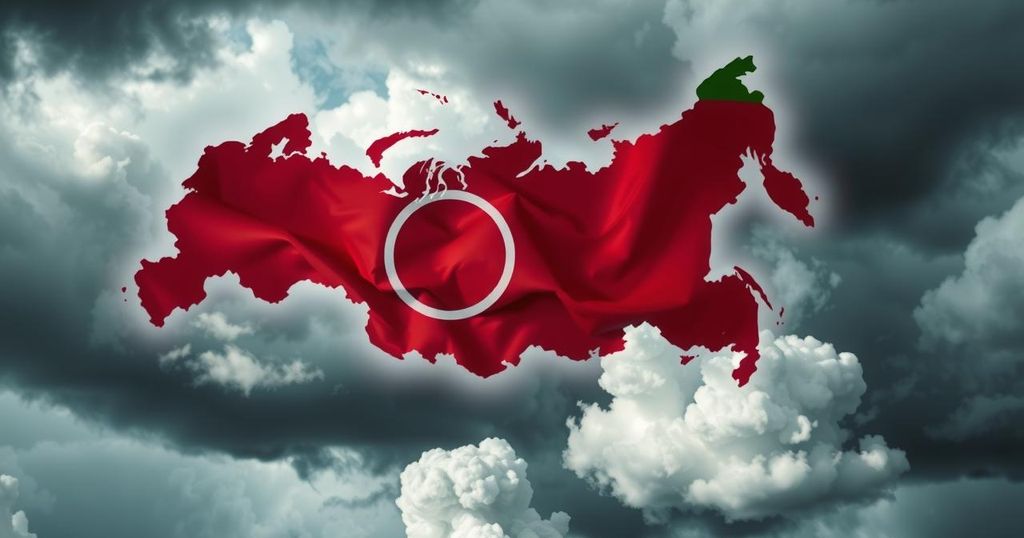Lukashenko’s Repression: The Threat of Belarusian Volunteers Fighting in Ukraine

Belarus’s dictator, Alexander Lukashenko, views Belarusian combatants in Ukraine as a threat, leading to aggressive measures to hunt dissenters, such as the extradition of Vasil Verameichyk. The regime’s fears stem from concerns over organized resistance and increased reliance on Russia as Belarus faces potential annexation. While engaging with the West for potential sanctions relief, Lukashenko’s actions indicate his desperation to eliminate threats to his rule, amidst complex geopolitical dynamics.
Alexander Lukashenko, the dictator of Belarus, perceives volunteers from his country who are fighting in Ukraine as a significant threat to his regime. Recently, the extradition of Vasil Verameichyk, a Belarusian soldier fighting alongside Ukrainian forces, from Vietnam demonstrates the lengths to which Lukashenko’s regime will go to suppress dissent. Verameichyk was forcibly returned to Belarus and coerced into making false confessions while appearing on state television, claiming a supposed plot against Belarus involving the Ukrainian government and Western support.
The Belarusian authorities have aggressively pursued those who participate in combat operations in Ukraine, with Minister of Internal Affairs Ivan Kubrakov stating that about 160 Belarusians have been identified. The regime believes these individuals not only represent defiance but may also lead future uprisings against Lukashenko’s rule. Observers argue that the combat experience and connections of these volunteers could embolden them to challenge the current dictatorship, consequently heightening the regime’s paranoia.
Pavel Slunkin, a fellow at the European Council on Foreign Relations, remarked on the vulnerability of Belarusian volunteers abroad, emphasizing the lack of social and legal protection from the Ukrainian government. He warned that the Belarusian KGB or Russian FSB might target these individuals without assistance from other nations, posing a significant risk to their safety and freedom.
Yuliana Shemetovets of the Belarusian Cyber Partisans highlighted that Lukashenko fears organized resistance, especially after observing successful uprisings elsewhere. She suggested that the case of Verameichyk serves as a warning to any Belarusians contemplating participation in the Ukrainian fight against Russia, attempting to intimidate those with ties to the regime into silence.
Lukashenko’s fears are compounded by his growing dependency on Russia, which signals an effective annexation of Belarus by Moscow. This situation threatens to enhance Russia’s military capabilities while weakening Belarus’ sovereignty, complicating relations with the West. The Institute for the Study of War notes that if Russia fully integrates Belarus, this could have harmful repercussions for NATO and the United States.
Despite this growing reliance on Russia, Lukashenko has sought to engage with the West. A recent meeting between U.S. officials and Belarusian representatives may signal an effort to ease tensions, with discussions reportedly including a potential reduction in sanctions in exchange for releasing political prisoners. Nonetheless, Lukashenko’s crackdown on dissenting soldiers illustrates his commitment to stifling any opposition as he tries to prove loyalty to Moscow.
Political science scholar Taras Kuzio expressed surprise over the lack of action from Belarusian volunteer battalions in Belarus. He speculated that an undisclosed deal between Lukashenko and Ukrainian President Volodymyr Zelensky might prevent these volunteers from crossing into Belarus. This potential arrangement highlights the fraught dynamics between the neighbors as they navigate their complex relationship amid the ongoing conflict.
In a contrasting narrative, Lukashenko publicly denied having expressed regret over the use of Belarusian territory for Russian missile launches, framing his relationship with Ukraine as one of accusation and blame. He defended his regime as preferable to Ukraine’s democracy, highlighting the stark ideological divisions between the two nations as the war persists.
The ongoing struggle between Lukashenko’s regime and Belarusian volunteers fighting for Ukraine encapsulates the broader tensions within Belarusian society. With threats of repression facing those who resist, the regime seeks to instill fear, while volunteer fighters symbolize potential avenues for organized resistance against dictatorship. As Belarus faces increasing integration with Russia, the possibility for a significant upheaval looms, depending heavily on international relations and the ongoing conflict’s dynamics.
Original Source: www.kyivpost.com








